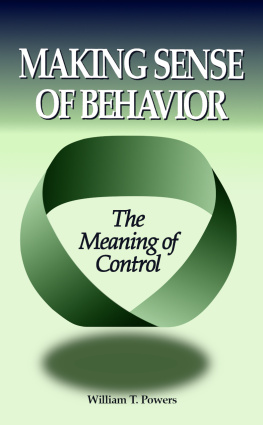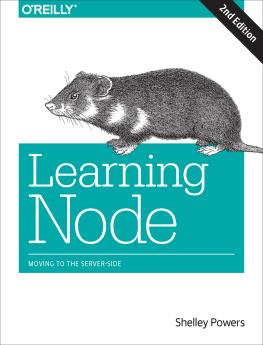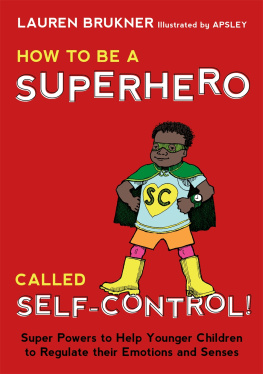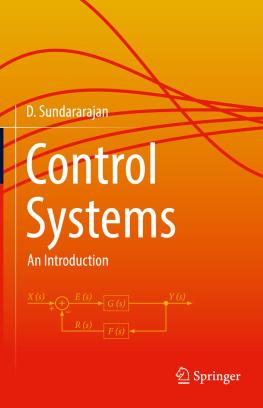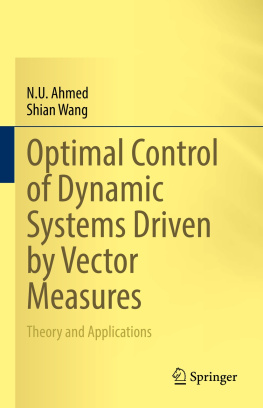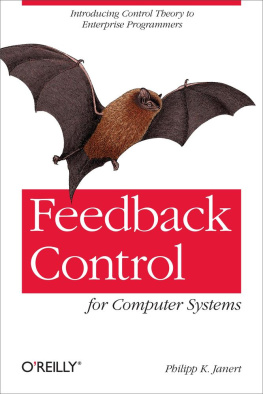1998-2010 Benchmark Publications Inc.
All rights reserved. No part of this book may be used, reproduced
or transmitted in any form without written permission of the publisher.
Printed in the United States of America.
I dedicate this book to Philip J. Runkel, 1917-2007 .
Phil was my friend, a sharp questioner who made me think, an enthusiastic revolutionary who stirred me to do better, a writer of talent and knowledge, a man who left the world
and PCT
better than he found it.
About the Author

William T. Powers
Scientist, Theorist, Originator,
Perceptual Control Theory
Bill Powers grew up in a suburb of Chicago, Illinois and served in the United States Navy in World War II, after which he earned his Physics degree from Northwestern University on the GI Bill. His interest in control theory as a model of behavior began while he was a medical physicist at the Veterans Administration Research Hospital in Chicago, where he designed many devices for medical research; notably, a curve-tracer for plotting isodose contours in the beam of radiation from a Cobalt-60 therapy machine.
While attending the Graduate School of Psychology at Northwestern in 1960, he worked part-time as a technician in the Department of Astronomy where later he became chief systems engineer. In that capacity, Powers designed and built low-light-level television systems for astronomy. He was involved in the design of the Lindheimer Astronomical Research Center, and was responsible for the design and building of the Corralitos Observatory. He created the automatic all-sky photometer for use on the moon (for Apollo 18, which never flew).
During this period, Powers conducted several one-quarter seminars on control theory at NU, sponsored by Don Campbell and Hugh Petrie. Throughout these early years, he was publishing regularly on the subject of control theory (his book, Behavior: The Control of Perception, was the culmination of more than 20 years study when it was first published in 1973).
In 1984, Powers and his colleagues founded the Control Systems Group (CSG). Members participate in research, discussion and practical application of control theory, now called perceptual control theory (PCT). They communicate on line regularly, and hold an annual CSG International Conference, most recently at the University of Manchester, UR in conjunction with the 2010 meeting of the British Association for Behaviour and Cognitive Psychotherapies (BABCP).
See perceptualcontroltheory.org [US]
See also pctweb.org/home.html [UK]
Powers retired in 1990 from the Chicago Sun Times, where he spent over a decade as a technician in the technical services group. Among many special projects, he developed a system for receiving newsprint manifests by wire, and won the Marshall Field Award for his microcomputer system for receiving, formatting, and typesetting satellite-broadcast stock tables in real time.
Throughout his varied career, and ever since, he has continued his work on developing a control-system model of behavioral organization. In retirement, Powers spends his time writing, giving seminars and papers both here and abroad at international scientific meetings, conducting research, and working with colleagues across borders on collaborative projects, such as building testable models of the theory. When asked to describe himself, Bill said:
I've always been pretty much a blue-collar type, by training and by preference.
Foreword
Humans find humans endlessly fascinating. Alexander Pope was more pontifical about it: The proper study of mankind is man. Since you have opened this book, no doubt you have a similar sentiment, and no doubt you have already read many books and uncounted magazine articles about the nature of humankind. If you are a scholar of some years, you have read hundreds, even thousands. What can still another book promise?
For almost a century, it has been the custom among American psychologists to seek to understand human nature by watching what people do, Most books about human nature focus on human doings; they focus on nameable acts with beginnings and endings. Consider a television set. What does a TV do? It shows us moving pictures on its screen; that is the behavior we see. But we could spend an entire lifetime studying the action on the screen and never come to understand a thing about how a TV functions. This book does not focus on visible acts. It focuses on perception. It shows us how action comes about if and only if we find a discrepancy between what we are experiencing and what we want to experience.
In other books, authors who are concerned about morality tell us about good and bad actions, authors who care about influencing others tell us about actions we can take (so they think) to cause others to do what we want them to do, authors who care about the sheer drama of human action tell us tales of derring-do, and so on. Novelists, dramatists, historians, anthropologists, sociologists, psychologists, and others of many stripes describe and catalog for us the multifarious and unending parade of human behavior, It is not surprising that our fascination focuses on action, since visible, tangible action is what we easily perceive. But that focus cannot tell us how any human individual functions.
Some books do tell us about perceiving, Artists write about how we see things, musicians about how we hear things, and psychologists and physiologists about how we perceive the energies that impinge upon our sensory organs. A few authors tell us about how we compare things, too. Psychophysicists tell us how sensory illusions affect the comparisons we makefor example, how lines of equal length can look unequal if the eye is misled by other lines angling past them. Many sorts of writers tell us how rich people feel poor in comparison to people still richer.
There is, however, something important missing from all those books, especially those written by psychologists and other social scientists. Very few books tell us how action, perception, and comparison are inescapably intertwined in every action, every thought, every judgment, every yearning. Even fewer tell us how humans can function as they do in acting, perceiving, and comparing. Books tell us that humans do act, perceive, and compare, but almost no book tells us how it is possible for humans and other living creatures to do those things, and how, indeed, all three must always be done simultaneously if they are to be done at all. Do you know of a book, for example, that tells you how a human can stand upright? How is it that we can Manage, as a wind pushes on us, as we move to wave at someone, as we find ourselves walking along the aisle of a moving bus, as we stand on the deck of a wallowing ship, and as our muscles tire, to remain upright instead of toppling over, as you would naturally expect a mere assembly of loosely joined bones and yielding flesh to do?

